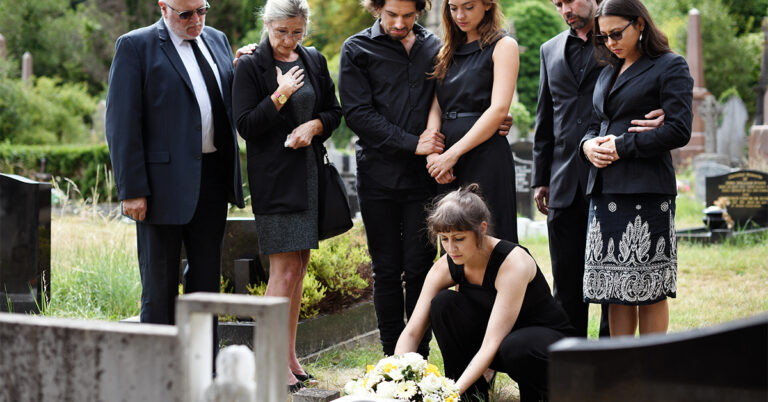
Sometimes, work injuries lead to the absolute worst outcome: Death. In these cases, Wisconsin workers’ compensation death benefits may be available to surviving spouses and other dependents.
At Lein Law Offices, our Wisconsin workers’ compensation attorneys in Hayward and Winter can help your family navigate this complex and at times overwhelming system to fight for the maximum benefits available under the law.

These benefits can include compensation for the financial contributions decedent worker would have made had he or she survived, as well as burial and funeral expenses. Unlike a typical Wisconsin tort action, workers’ compensation laws does not allow families to collect damages for pain and suffering, mental anguish or loss of consortium, but it’s possible one may still attain payment for these if a third-party is also found liable for damages. Consulting with an experienced workers’ compensation and personal injury law firm is best done as soon as possible.
Workers’ compensation death benefits, as outlined in WI Stat.§ 102.46-102.51, allow compensation payable to certain family members when a work-related accident or occupational disease results in death of a person who was essential in providing financial support. In the event worker dies while entitled to permanent and total disability benefits, statute provides for payment of up to four years’ worth of decedent’s salary (up to the current statutory maximum), plus funeral expenses.
The truth of the matter is no amount of money is going to account for the enormity of your loss. However, many families have found these benefits allow for critical financial assistance that helps families stay afloat financially.
For the most part, requirements for Wisconsin workers’ compensation death benefits are akin to those for work-related injuries. Mainly, one must prove:
At maximum, claimants may collect up to four years’ worth of decedent’s salary (based on average weekly wage at time of injury/ illness onset), plus funeral expenses.
Workers’ compensation death benefits in Wisconsin are available to those who were dependent – wholly or in part – on decedent worker’s salary.
Presumed to be totally dependent are:
If these two groups are entitled to receive death benefits, no other family or dependents will be eligible to collect them also, as these are the priority. However, if there are no survivors in the above categories, there may be other family members entitled to receive death benefits from workers’ compensation. These may include:
A full list of dependents is provided in Wis. Stat. § 102.51.
The total amount available will depend on how much the worker earned in the year prior to the injury that ultimately resulted in death.
Although benefits are paid weekly, they are calculated by first counting one’s annual salary, multiplying that by four and then dividing by 208 (which is four years’ worth of weeks). These benefits are capped at a certain amount, updated annually. As listed by the Department of Workforce Development in 2018, the total cap for annual wage x4 is $298,200, capped weekly rate was $994. These rates are updated annually (usually with an increase).
Minor children are entitled to additional benefits after the spouse/ partner’s benefit ends before the children turn 18. In that case, children can receive a benefit of 10 percent of the full benefit paid out (up to the maximum of $99.40/ weekly in 2018) until they reach the age of majority. Children who are physically or mentally incapacitated can continue receiving such benefits after turning 18, but only for a total period of 15 years.
Parents who were un-estranged and had not received more than $500 in the year preceding the injury causing death are entitled to receive a death benefit of $6,500, per Wis. Stat. §102.48. If parents aren’t living together, this sum is to be “divided in such proportion as the department or division deems just.” If the parents received more than $500 in annual support contributions, they may be entitled to receive up to four times that amount or half of what the total allowable death benefits would be.
Burial expenses and funeral expenses resulting from a work-related accident/ occupational disease are to be paid up to the statutory limits by the workers’ compensation insurer.
A Hayward workers’ compensation attorney can help you file for these benefits and ensure you have as much evidence as possible prepared to support your claim.
Get answers now. Reach out to Lein Law Offices online or call our Winter and Hayward workers’ compensation attorneys in Wisconsin toll-free at 1-800-944-3949.
Lein Law – is a team of highly experienced litigation attorneys in Wisconsin representing clients in the matters of Personal Injury, Workers Compensation, and Disability Law.
© 2023 Lein Law Offices